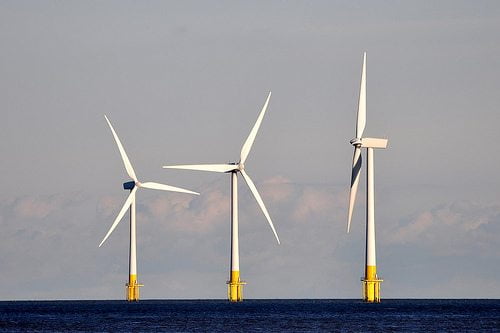

Energy
NAO questions government’s £16.6bn renewable energy contracts
The government’s spending watchdog has questioned whether the early contracts awarded to eight renewable energy projects, collectively worth £16.6 billion, have overpaid energy firms at the expense of the taxpayer.
In April, the government stepped in to offer contracts to the projects – five offshore wind farms, one biomass combined heat and power plant and two coal plants set to be converted into biomass plants – in order to fill an investment gap.
It is anticipated that by 2020, the projects will provide up to £12 billion of private sector investment and generate around 4% of Britain’s energy mix, providing an important boost in the government’s decarbonisation efforts.
However, the National Audit Office (NAO) has suggested that because the money was committed without price competition, the government has failed to secure value for money.
“The investments supported should contribute towards the UK’s achieving its renewable energy target in 2020, but it is not clear that awarding fewer early contracts would have put the achievement of that target at risk”, said Amyas Morse, head of the National Audit Office.
“As the contracts for difference regime has the potential to secure better value for consumers through price competition, committing so much of the available funding through early contracts, without competition, has limited the Department of Energy and Climate Change’s (DECC) opportunity to secure better value for money.
At the heart of the debate is the government’s new contracts for difference (CfD) scheme, due to be launched later this year. CfDs offer a guarantee to generators of an agreed price for electricity. If the market price for electricity falls lower than the agreed “strike price”, then generators are subsidised. If it rises above it, generators pay back the difference.
Generators will have to compete for these contracts, securing a good deal for consumers.
For renewable energy projects further along in their development and awaiting investment, the government launched an early form of CfDs – the controversial contracts offered to the eight new projects – with strike prices set without competition from other developers.
“The scale of early contracts for renewables, awarded without competition, may have increased costs to consumers. The department proceeded […] despite acknowledging that competitive pricing might reveal subsequently that its administratively set strike prices in some cases were too high”, the NAO said in a statement.
The NAO’s report adds that it is not certain that the whole £16.6 billion worth of support was needed so soon in order to meet the nation’s renewable energy target.
However, a DECC spokesperson said the deals “have reassured those we need to invest in our energy security”.
They added, “Without that investment, projects would have been unable to go ahead or been significantly delayed, putting our future energy security at risk.”
RenewableUK, the trade body for the UK’s wind, wave and tidal energy industries, has also praised the impact of the CfDs, saying they gave developers the confidence to go ahead with major green energy infrastructure projects at a crucial time.
“Overall, the process has helped to stimulate commitments to the UK by manufacturers such as Siemens which will be creating 1,000 jobs in offshore wind in East Yorkshire”, said RenewableUK’s deputy chief executive Maf Smith.
“More than 13,000 people in the UK already owe their livelihood to the offshore wind sector, which has the potential to employ nearly 45,000 by 2023.
“These five offshore wind projects, with a combined capacity of over 3,000 megawatts, will help to provide energy security for the UK by powering more than 2 million homes”.
Photo: Martin Pettitt via Flickr
Further reading:
RenewableUK publishes 2015 general election policy wishlist for renewable energy
Government estimates electricity market reforms will lead to £100bn investment
Green Investment Bank to launch £1bn offshore wind fund
Renewable energy sector set for £64bn investment by 2020
Eight renewables projects given go-ahead in ‘green energy investment boom’


 Environment12 months ago
Environment12 months agoAre Polymer Banknotes: an Eco-Friendly Trend or a Groundswell?

 Features11 months ago
Features11 months agoEco-Friendly Cryptocurrencies: Sustainable Investment Choices

 Features12 months ago
Features12 months agoEco-Friendly Crypto Traders Must Find the Right Exchange

 Energy11 months ago
Energy11 months agoThe Growing Role of Solar Panels in Ireland’s Energy Future



























